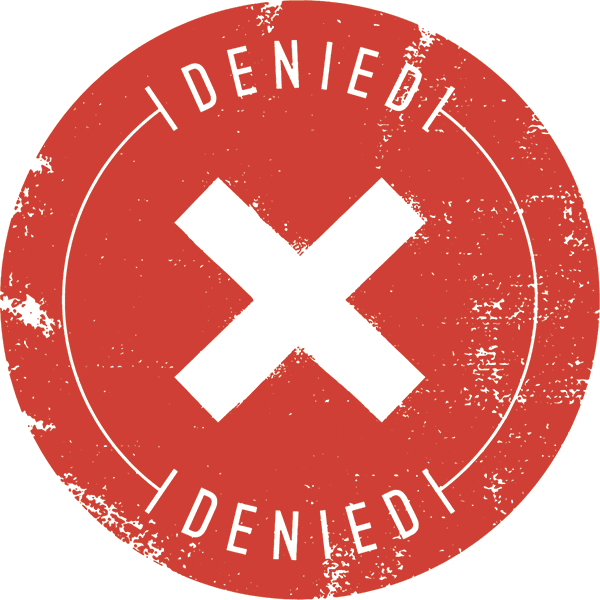Introduction
Hey there, bright soul—slide into a comfy seat and picture Queens in the mid-1990s. Over squealing subway brakes and distant boom-box bass lines, a young Nora Lum darts between Cantonese noodle shops, Jamaican patty stands, and Puerto Rican barbershops. Her dad, Wally, a quiet tech professional, spins Biggie tracks in the family sedan. Grandma Powah keeps the household humming with dumplings and Cantonese proverbs after Nora’s mother, Tia, passes away when Nora is just four. Childhood grief carves silence; neighborhood music fills the gap.
By eleven, Nora clutches a battered trumpet, marching-band sheet music fluttering in her backpack. Lunchtimes echo with cafeteria freestyles—Dominican drums tapped on tables, Black classmates chanting hooks, Korean friends laughing at improvised punch lines. Queens’s melting-pot melody seeps into her voice long before she names it. In high school she tries performing stand-up, bombing gloriously but loving the buzz. At SUNY Albany she majors in journalism, DJs campus parties, and writes rhymes instead of term papers. A semester abroad in Beijing gifts her a stage name: Awkwafina—awkward yet effervescent, like soda pop fizz.
Back home in 2012 she borrows a friend’s Canon, shoots a guerilla-style video for “My Vag,” and uploads it to YouTube. Overnight views rocket to the millions; the earworm hook and comedic swagger get her fired from a Manhattan publicity assistant job. She shrugs, grabs her MetroCard, and doubles down on rap.(Galore|WAMU)
Music blogs crown her queen of low-budget bravado. MTV’s Girl Code calls. Comedy Central hands her sketch cameos. Yet it’s Hollywood that lifts her into the stratosphere: 2018’s Ocean’s 8 casts her as Constance, the sticky-fingered hustler whose rapid-fire wisecracks steal diamonds and scenes alike. That same summer, Crazy Rich Asians introduces Peik Lin—the leopard-print-loving cousin with a Queens lilt thick enough to sauce Singapore street food. Audience laughter shakes theaters; studio executives scribble new offers.
Then the breakthrough pivots to drama. Lulu Wang’s The Farewell strips away brashness, revealing Awkwafina’s quiet ache as Billi—a granddaughter guarding a bittersweet secret. The performance clinches a Golden Globe for Best Actress in a Comedy or Musical, making her the first woman of Asian descent to win that prize.(EW.com) Suddenly she’s not just comic relief; she’s a milestone.
Representation headlines roar, yet a different conversation shadows the applause. Fans and critics notice the shift in her speech: thick “blaccent” in early rap videos, subtler tones on awards podiums. Think-pieces ask: is this authentic Queens code-switching or an opportunistic costume? In 2018 she tells Vice she avoids Asian caricatures because “I refuse to do accents,” sidestepping why Black linguistic markers feel fair game. Controversy simmers until February 2022 when she posts a four-page Twitter statement citing sociolinguistics and systemic racism—no direct apology—then deactivates her account. Critics dub it a “non-apology” and continuation of cultural cherry-picking.(The Independent|Business Insider)
So here we are, friend, popcorn in hand. Can Awkwafina—Queens kid, rap joker, Golden Globe trailblazer, and lightning rod for appropriation debates—rightfully hold the mythical N-Word Pass? Let’s unpack history, humor, and hotspots to see whether the velvet rope opens or stays firmly shut.
Cultural Context & Historical Background
The N-word’s path begins aboard slave ships, carved into human dignity through forced labor and segregation laws. During Reconstruction and the Great Migration, Black communities sand down its hard-edged ending, turning pain into an internal password that carries both camaraderie and caution. By hip-hop’s birth in the Bronx, the reclaimed form booms through block parties—part rallying cry, part vent valve. Access, however, stays guarded; outsider tongues remain unwelcome.
Enter pop culture’s meme machine. In the late 2000s Xbox chatrooms, teenage comedians invent the “N-word pass” as a digital get-out-of-backlash-free card. TikTok jokes eventually morph into laminated gag coupons, ignoring that real harm still tags along. Meanwhile, rap’s global reach means Japanese b-boys quote Nas lines, Norwegians practice double-time flow, and suburban American cheer squads chant ATL hooks at pep rallies. Cultural diffusion floods faster than etiquette guidelines can be drafted.
Awkwafina’s upbringing sits squarely in that diffusion. Queens is hip-hop’s younger cousin—still pulsing from the Bronx’s original beat. Growing up, she hears AAVE not as exotic slang but as playground language, just like Spanish curses or Cantonese exclamations. Linguists dub this “multiethnolect urban English,” a contact dialect born in shared spaces. Yet proximity alone doesn’t erase power imbalance. If a Black teen speaking that English faces school suspension while a non-Black entertainer monetizes it, friction flares.
Award recognition magnifies the microscope. When Awkwafina clutches a Golden Globe, critics remind the world that predecessors like Dave Chappelle or Raven-Symoné never saw similar mainstream accolades for using similar speech patterns. Then her 2022 statement drops. She references “linguistic acculturation” and “immigrant contexts” but sidesteps ownership of hurt. She vows to retire from voice roles that rely on “exaggerated characterizations,” yet the absence of “I’m sorry” leaves Twitter ablaze.
The pass conversation crystallizes bigger questions: Who decides cultural boundaries? Can borrowed flavor turn to theft once it’s monetized? Does early immersion grant lifetime license, or must continuous accountability renew membership? Awkwafina’s résumé of rap tracks, blockbuster roles, and social-media fumbles offers a juicy test case.
Pros
Queens Immersion Cultivated Authentic Cadence
Childhood apartment walls rattled with Biggie and Mobb Deep. Neighborhood slang floated through open fire escapes. Awkwafina’s accent formed before record deals—more survival dialect than stage gimmick.
Hip-Hop Scholarship Evident in Early Music
Mixtapes like Yellow Ranger flaunt boom-bap drums, scratch bridges, and punch lines that nod to Missy Elliott and Lauryn Hill deep cuts. Craft like that signals study, not parody. (YouTube)
Barrier-Breaking Representation Aligns with Hip-Hop Ethos
Her Golden Globe win, Marvel role in Shang-Chi, and spot as only the second Asian American woman to host SNL ripple forward, widening doors much like hip-hop once bulldozed mainstream gates.(The Washington Post|EW.com)
Solidarity Shown in Public Statements
Press junkets find her boosting Stop AAPI Hate, praising Black Lives Matter, and urging intersectional unity. Intent to uplift appears sincere, even if execution stumbles.
Not Recorded Using the Slur
Despite years in rap cyphers and on movie sets, no clip shows Awkwafina uttering the N-word. Self-imposed boundary lines suggest some respect for the word’s weight.
Cons
Accent Feels Deployable, Not Inescapable
Early viral clips boom with pronounced AAVE tones, while awards interviews soften into standard broadcast English. This on-off switch frames Black speech as career seasoning rather than lived identity.
February 2022 “Non-Apology” Dodged Accountability
Her four-page statement cited academia but missed a plain apology. Deactivating Twitter days later fueled claims of evading critique rather than standing in discomfort. (The Independent|Business Insider)
Scarce Tangible Investment in Black Communities
Unlike peers funding scholarships at HBCUs or mentoring Bronx arts programs, Awkwafina’s philanthropy skews toward Asian American causes, leaving the culture she borrows from without visible reinvestment.
Characters Rely on Exaggerated Slang for Laughs
Roles like Constance and Peik Lin mine comedic gold from rapid-fire AAVE cadences. Studios profit; communities supplying the cadence see no royalty check.
Interview Answers Remain Vague
Press questions about appropriation often yield linguistic jargon without direct acknowledgment of harm, eroding trust among skeptics.
Deeper Cultural Analysis
Culture is a busy NYC crosswalk—languages collide, rhythms synchronize, and nobody walks straight. Yet systemic inequity polices which bodies pay tolls. When non-Black artists—be they Eminem or Awkwafina—adopt Black speech, success often arrives minus the marginalization tax. Liquid modernity lets identities remix, but trauma-coded words like the N-word resist free circulation. The pass therefore isn’t really about letters; it’s a litmus test for shared burden. Awkwafina’s story reveals that shared stages without shared stakes keep the gate locked.
Final Verdict
No—Awkwafina does not hold the N-Word Pass. Queens roots and genuine hip-hop love earn applause, but selective accent usage, foggy contrition, and minimal reciprocal investment leave the trust ledger short. A pass demands more than proximity; it requires continuous, transparent reciprocity and readiness to shoulder the full weight of the culture you vocalize. Awkwafina, keep sparkling, keep learning, keep lifting voices—but let that word stay exactly where history stored it.















